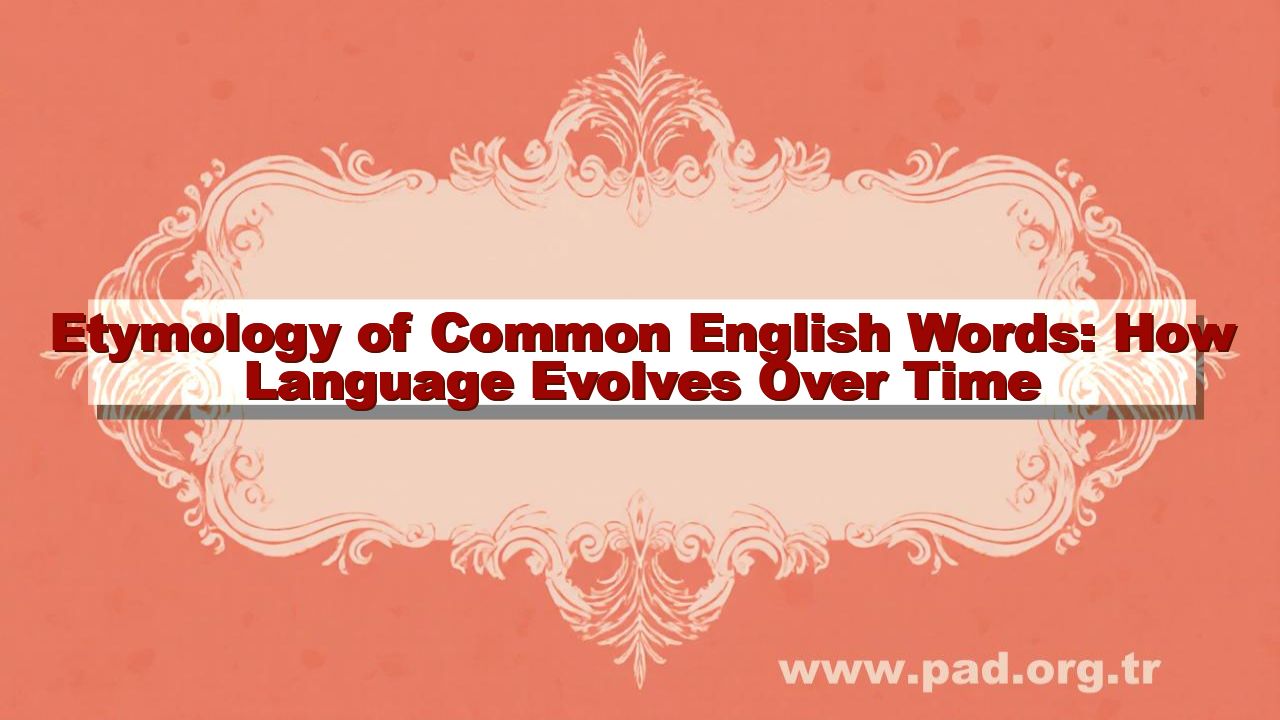Understanding the etymology of common English words—the study of their origins and how their meanings have changed throughout history—isn’t just a fun exercise; it shows us how deeply language reflects cultural shifts, invasions, and technological progress. English is essentially a giant linguistic tapestry, woven from Old English (Germanic roots), Old Norse (Viking influence), French (Norman Conquest), and Latin/Greek (scholarly and scientific borrowing). This history is what makes many common words hold fascinating, often surprising, stories. Let’s look at some great examples of how language evolves.
Borrowed Words: The Lingering Effects of Invasion and Trade 🛡️
English is a remarkably flexible language, constantly absorbing vocabulary from external sources. The most significant historical events left the deepest etymological marks.
The Germanic Core (Old English)
The earliest foundations of English come from the Germanic tribes (Angles, Saxons, Jutes) who settled in Britain. Most of our fundamental, everyday words are from this source.
- House: Straight from Old English hūs. It has consistently meant a dwelling.
- Strong: From Old English strang. These are the resilient, foundational words of the language that have changed little in function, demonstrating linguistic stability for core concepts.
The French/Latin Influence (The Norman Conquest) 👑
In 1066, the Normans (who spoke a dialect of French) conquered England. This introduced a huge influx of French vocabulary, which often became the words of governance, law, and high culture, while the existing Old English words remained for common life.
- Commence vs. Start: The Old English word is ‘start’ (Germanic). The formal, polite, or legal synonym is ‘commence,’ which entered English via French (commencer). This is why formal writing often uses Latin/French-derived words (like commence, proceed, purchase), while informal speech uses Germanic ones (like start, go, buy).
- Cow vs. Beef: The animal kept by the Anglo-Saxons was a ‘cow,’ but the meat served to the Norman nobility was ‘beef’ (from the Old French buef). This pattern holds for many farm animals: pig/pork (porc), sheep/mutton (mouton).
Semantic Change: How Meanings Drift Over Time 🕰️
Sometimes, a word’s form stays the same, but its meaning shifts dramatically—a process called semantic change.
- Silly: Today, it means foolish or ridiculous. Its original meaning in Old English (sælig) was ‘blessed, happy, or prosperous.’ It went through stages of meaning ‘innocent’ (because the innocent were seen as blessed), then ‘harmless,’ and finally ‘feeble-minded’ or foolish.
- Awful: Originally, it meant ‘inspiring awe’ or ‘worthy of respect’ (full of awe). For example, a king might have an awful presence. Over time, it narrowed to mean fear, then intensely bad, losing its positive connotation entirely.
Neologisms and Blending: Modern Evolution 💻
Language never stops changing. New words (neologisms) appear constantly, often through blending or combining existing words to describe new realities or technologies.
- Smog: This word is a classic example of a portmanteau (a blend of two words). It was created by combining smoke and fog in the early 20th century to describe the hazy air pollution in industrial cities.
- Podcast: A modern blend of iPod (referencing Apple’s device and the personal nature of the content) and broadcast. The term rapidly gained acceptance in the early 2000s to describe on-demand audio content, showing how technology drives linguistic innovation.
The etymology of English words serves as a fascinating timeline, chronicling every major cultural influence, from the Vikings (skirt, skill, ugly—many “sk” words are Norse) to the rise of the digital age (spam, selfie). It reminds us that every word we use is a miniature artifact of history.


